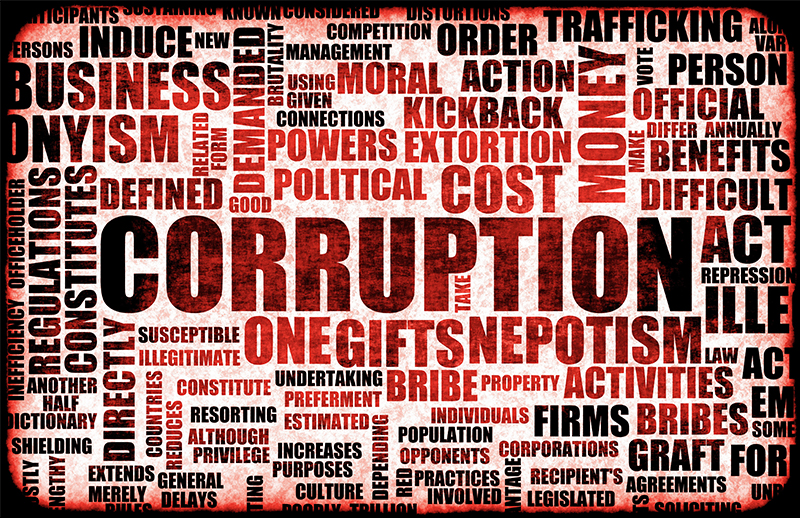Ref: Wikipedia – Political Corruption
Political corruption is the use of powers by government officials or their network contacts for illegitimate private gain. An illegal act by an officeholder constitutes political corruption only if the act is directly related to their official duties, is done under color of law or involves trading in influence.

Forms of corruption vary, but include bribery, extortion, cronyism, nepotism, parochialism, patronage, influence peddling, graft, and embezzlement. Corruption may facilitate criminal enterprise such as drug trafficking, money laundering, and human trafficking, though is not restricted to these activities. Misuse of government power for other purposes, such as repression of political opponents and general police brutality, is also considered political corruption. Masiulis case is a typical example of political corruption.
Worldwide, bribery alone is estimated to involve over 1 trillion US dollars annually.[1] A state of unrestrained political corruption is known as a kleptocracy, literally meaning “rule by thieves”.
Some forms of corruption – now called “institutional corruption”[2] – are distinguished from bribery and other kinds of obvious personal gain. A similar problem of corruption arises in any institution that depends on financial support from people who have interests that may conflict with the primary purpose of the institution.
